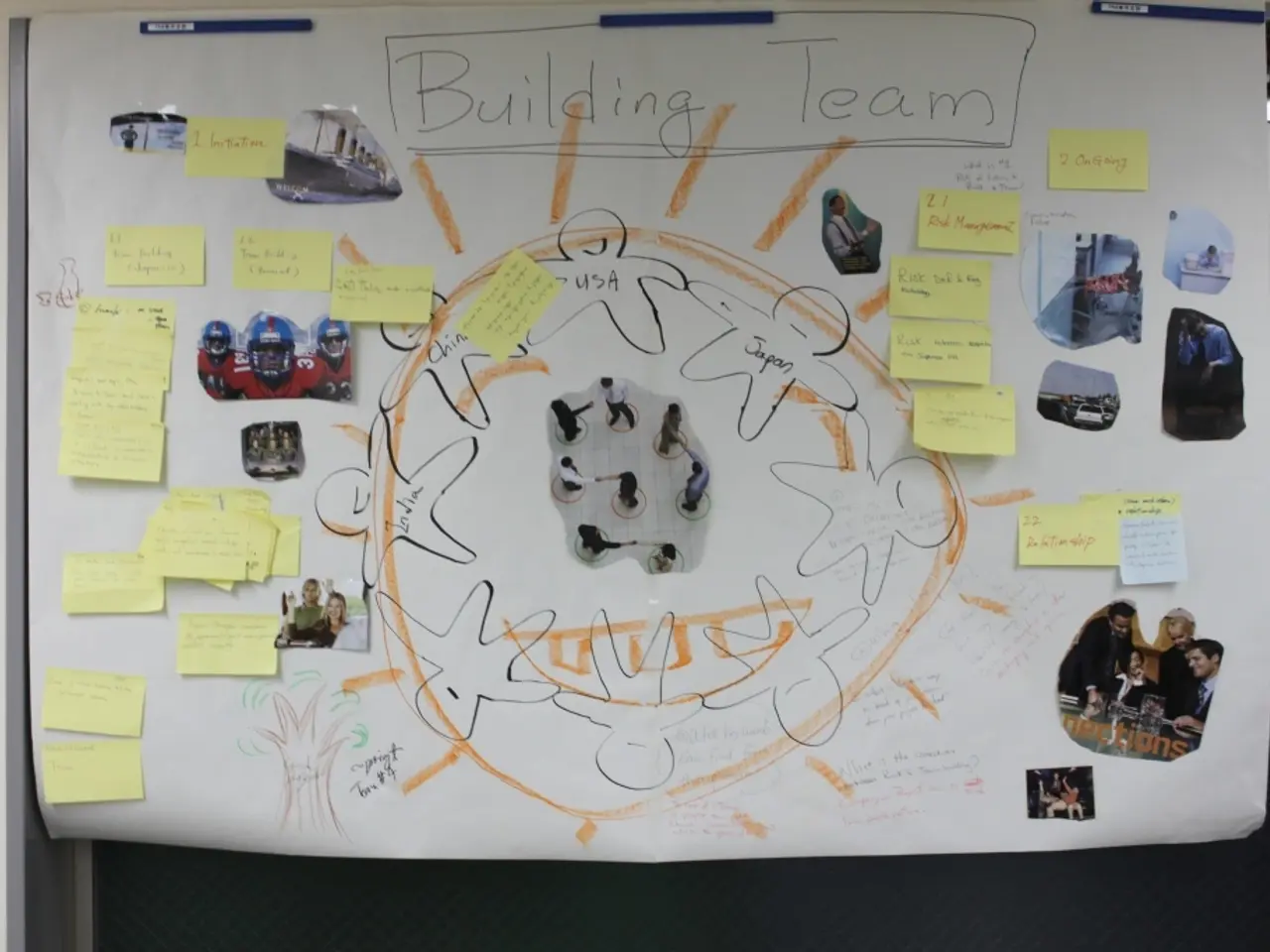Unraveling Strategies to Overcome Exhaustion Caused by ADHD
Adults with Attention Deficit Hyperactivity Disorder (ADHD) often grapple with persistent fatigue, affecting around 67% of them, according to a study published in the Journal of Clinical Sleep Medicine (Bijlenga et al., 2019). This article explores effective strategies for combating ADHD-induced fatigue, focusing on sleep hygiene, nutrition, exercise, time management techniques, cognitive behavioural therapy (CBT), and various non-pharmacological interventions.
Prioritizing Sleep Hygiene
Establishing a consistent sleep schedule and bedtime routine with minimal distractions, dim lighting, and avoiding stimulating activities or screens before bed can significantly improve sleep quality. This, in turn, reduces daytime fatigue common in ADHD. (Bijlenga et al., 2019; Ramtekkar et al., 2010)
Nutrition Matters
A well-rounded diet plays a crucial role in supporting brain function and energy stability. Prioritizing nutrient-rich foods can help reduce irritability, brain fog, and energy crashes associated with ADHD fatigue. (Bijlenga et al., 2019; Ramtekkar et al., 2010)
The Power of Exercise
Incorporating regular physical activity into your routine can alleviate ADHD symptoms, enhance attention, memory, and cognitive performance, and provide an energy boost to combat fatigue. This includes sustaining a regimen of moderate or vigorous exercise, incorporating strength training, and practicing mind-body exercises. (Bijlenga et al., 2019; Ramtekkar et al., 2010)
Time Management Techniques
Using timers, calendars, and breaking large tasks into smaller, manageable chunks can reduce mental overload, procrastination, and stress, all of which exacerbate fatigue. Scheduling regular short breaks during tasks helps prevent cognitive fatigue and maintain alertness throughout the day. (Bijlenga et al., 2019; Ramtekkar et al., 2010)
Cognitive Behavioral Therapy and Mindfulness
CBT can help manage ADHD symptoms and associated fatigue by improving emotion regulation and problem-solving skills. Mindfulness practices such as meditation and breathing exercises can reduce racing thoughts and stress, promoting relaxation and better sleep. (Bijlenga et al., 2019; Ramtekkar et al., 2010)
Interest-Based "Reboot" Sessions
Brief periods spent on personally engaging activities can provide a mental and emotional lift that counters fatigue and improves focus. (Bijlenga et al., 2019)
Environmental Control
Minimizing distractions by creating calm, organized workspaces supports attention and reduces fatigue caused by overstimulation. (Ramtekkar et al., 2010)
Combining these interventions consistently is often necessary to effectively manage the complex fatigue related to ADHD without relying solely on medication. (Bijlenga et al., 2019)
Other Strategies
- Setting realistic goals is important for people with ADHD to avoid overcommitting.
- Behavioral interventions, such as breaking thought habits and weaving in positive coping tactics, can help reduce emotional drain for people with ADHD.
- Signs of ADHD-induced fatigue include feeling worn out even after a decent night's sleep, struggling to stay motivated, being irritable, and feeling overwhelmed.
- Mindful meditation can help improve attention and emotional balance for people with ADHD.
- CBT, guided by an ADHD-specialist therapist, can provide strategies to manage symptoms.
- Breaking tasks into smaller steps can increase the sense of accomplishment for people with ADHD.
- Biofeedback therapy can help people with ADHD gain control over physiological functions.
- Using a planner (physical or digital) can help clear the mind for people with ADHD.
- Regular check-ins with a healthcare provider can help fine-tune treatment plans for people with ADHD.
- Managing ADHD symptoms puts a significant cognitive load on the brain, making it feel like an overloaded computer.
- Optimizing sleep hygiene is a key strategy to combat ADHD-induced fatigue. This includes establishing a routine, creating a sleep-friendly environment, limiting screen time, and practicing mindfulness and relaxation techniques.
- Neurofeedback can help adjust brain activity for people with ADHD.
- Mindfulness-Based Stress Reduction (MBSR) can improve mental wellness for people with ADHD.
- Using the Eisenhower Box can help prioritize tasks for people with ADHD.
- A well-rounded diet can help fend off fatigue. This includes balanced meals, omega-3 fatty acids, staying hydrated, and limiting caffeine and sugar.
People with ADHD are more likely to feel fatigued compared to those without ADHD, according to a study in Behavioral and Brain Functions (Barkley, 2017). By implementing these strategies, individuals with ADHD can better manage their energy levels and lead more balanced, productive lives.
- Establishing a consistent sleep schedule and a sleep-friendly environment, avoiding stimulating activities before bed, and practicing mindfulness and relaxation techniques can significantly improve sleep quality for those with ADHD, reducing daytime fatigue.
- Prioritizing nutrient-rich foods, including balanced meals and omega-3 fatty acids, while limiting caffeine and sugar, can help reduce irritability and brain fog associated with ADHD fatigue.
- Incorporating regular physical activity such as moderate or vigorous exercise, strength training, and mind-body exercises, like breathing exercises, can alleviate ADHD symptoms, enhance focus, and combat fatigue.
- Cognitive Behavioral Therapy (CBT) can help manage ADHD symptoms and associated fatigue by improving emotion regulation and problem-solving skills, while mindfulness practices can reduce stress and promote relaxation, better sleep, and improved focus.
- Using time management techniques such as setting realistic goals, breaking large tasks into smaller, manageable chunks, and scheduling regular breaks during tasks can help prevent cognitive fatigue and maintain alertness throughout the day. Additionally, interest-based activities can provide a mental and emotional lift, countering fatigue and improving focus. Environmental control, by minimizing distractions and creating calm, organized workspaces, also supports attention and reduces fatigue caused by overstimulation. Combining these interventions consistently is often necessary to effectively manage the complex fatigue related to ADHD without relying solely on medication.




